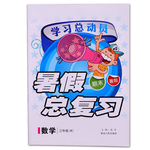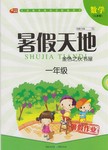题目内容
We must do what we can to protect the plants because plants are very important for living things. Life could not go on if there were no plants. This is because plants can make food from air, water and sunlight. Animals and man cannot make food from air, water and sunlight. Animals get their food by eating plants and other animals. Therefore animals and man need plants in order to live. This is why we find that there are so many plants around us.
If you look carefully at the plants around you, you will find that there are two kinds of plants: flowering plants and non-flowering plants. Flowering plants can make seeds. The seeds are protected by the fruits. Some fruits have one seed, some have two, three or four, and some have many seeds. But a few fruits have no seeds at all. An example of a fruit without seeds is the banana fruit. Most non-flowering plants do not grow from seeds. They grow from spores(胚芽). Spores are very small. Some spores are so small and light that they can float in the air. We may say that spores are quite the same as seeds. When these spores are all on wet and shady places, they usually grow into new plants.
1.Plants can make food from______.
A. flower, water and air B. water, sunlight and air
C. air, water and soil D. air, sun and light
2.The main idea of the first paragraph is that ______.
A. plants are important for life
B. plants cannot grow without air
C. there are many plants in the world
D. we can not live without water
3.What can we infer(推断) from the passage?
A. Of all living things animals are most important
B. Spores are seeds
C. All fruits of flowering plants have seeds
D. Without plants, man will die out
4.This passage may be taken from______.
A. a medicine book B. a novel
C. a science magazine D. an experiment report
5.The underlined word “protected” in the passage can be replaced by ______.
A. damaged B. polluted C. prevented D. guarded
1.B
2.A
3.D
4.C
5.D
【解析】
1.细节理解题。根据第一段的第三句话:“plants can make food from air, water and sunlight. ”可知,答案选B。
2.主旨大意题。根据第一段的前两句话可知植物对于生命是很重要的,接着给出了原因,动物不能制造食物,只能吃掉植物或动物,只有植物能够利用空气、阳光和水制造食物,所以答案选A。
3.推理判断题。通读全文可知,植物能够利用空气、阳光和水制造食物,动物不能制造食物,只能吃植物或动物,离开了植物,动物包括人类都要死亡,故选D;文中没有突出动物的重要性,故A是错误的;孢子和种子是两种不同的繁殖方式,故B是错误的;香蕉这种开花植物的果实就没有种子,故C是错误的。
4.推理判断题。本文讲述的是植物的重要性以及繁殖方式,很显然是一篇科普文章,故选C。
5.推断词义题。结合常识可知,有果实的植物种子往往在果实内部,果实起着保护种子的作用。所以protected应是“保护”的意思,有guarded相近。

 学期复习一本通学习总动员期末加暑假延边人民出版社系列答案
学期复习一本通学习总动员期末加暑假延边人民出版社系列答案 芒果教辅暑假天地重庆出版社系列答案
芒果教辅暑假天地重庆出版社系列答案“People should have one meat-free day a week if they want to make a personal and effective sacrifice that would help deal with climate change,” the world’s leading authority on global warming has told The Observer.
Dr Rajendra Pachauri, chair of the United Nations Intergovernmental Panel on Climate Change, said that people should then go on to reduce their meat consumption even further.
Pachauri, who was re-elected the panel’s chairman for a second six-year term last week, said diet change was important because of the huge greenhouse gas emissions (排放) and other environmental problems associated with raising cattle and other animals. “It was relatively easy to change eating habits compared to changing means of transport,” he said.
The UN’s Food and Agriculture Organisation has estimated that meat production accounts for nearly a fifth of global greenhouse gas emissions. These are produced during the production. For example, ruminants (反刍动物), particularly cows, give off a gas called methane, which is 23 times more effective as a global warming agent than CO2.
Pachauri can expect some opposite responses from the food industry to his advice, though last night he was given unexpected support by Masterchef presenter and restaurateur John Torode. “I have a little bit and enjoy it,” said Torode. “Too much for any person is bad. But there’s a bigger issue here: where the meat comes from. If we all bought British and stopped buying imported food, we’d save a huge amount of carbon emissions.”
Professor Robert Watson, the chief scientific adviser for the Department for Environment Food and Rural Affairs, said government could help educate people about the benefits of eating less meat, but it should not regulate. “Eating less meat would help, there’s no question about that,” Watson said.
However, Chris Lamb, head of marketing for pig industry group BPEX, said the meat industry had been unfairly targeted and was working hard to find out which activities had the biggest environmental impact and reduce them. “Some ideas were contradictory,” he said. “For example, one solution to emissions from cattle and other animals was to keep them indoors, but this would damage animal welfare. Climate change is a very young science and our view is there are a lot of simple solutions being proposed.”
1.What is directly related to global warming?
|
A.Consumption of meat. |
B.Growth of cattle. |
|
C.Methane from ruminants. |
D.Processing of meat. |
2.Who holds a view opposite to the others’ in the passage?
|
A.Rajendra Pachauri. |
B.John Torode. |
C.Robert Watson. |
D.Chris Lamb. |
3.It is implied in the passage that _____.
|
A.we should try to keep away from cattle |
B.ruminants should not be left outdoors |
|
C.the meat industry will soon close down |
D.we must do our duty to save the earth |
4. Which of the following might be the best title for the passage?
|
A.Less meat, slower global warming |
|
B.More animals, more greenhouse gas |
|
C.Less imported food, better our environment |
|
D.Greater diet change, smaller climate change |